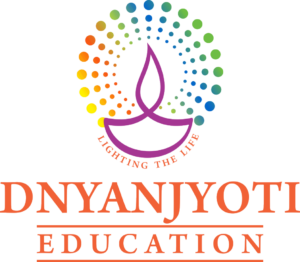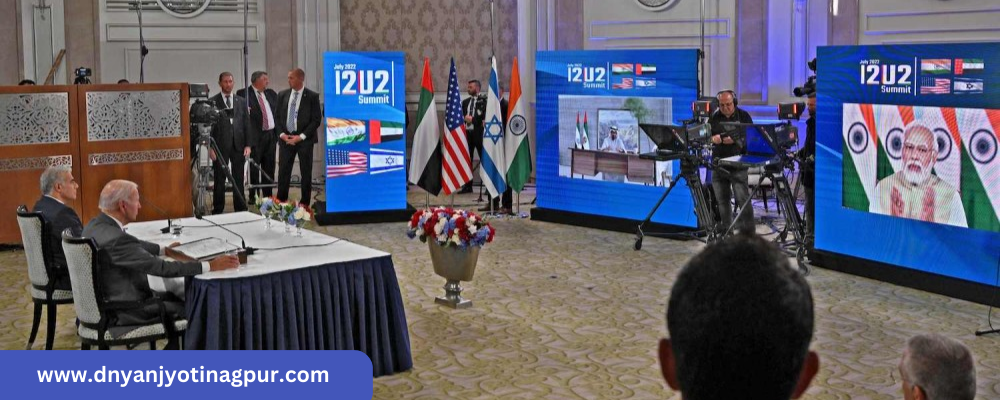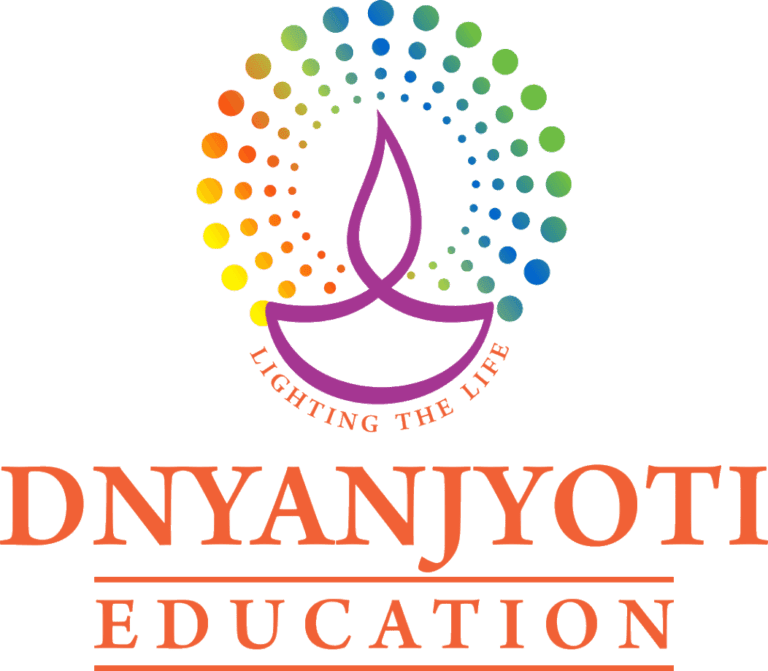Introduction:
Prime Minister Narendra Modi, along with U.S. President Joe Biden, Israeli Prime Minister Yair Lapid, and UAE President Mohammed bin Zayed Al Nahyan, participated in the inaugural virtual summit of the four-nation coalition known as ‘I2U2’. The name ‘I2’ represents India and Israel, while ‘U2’ stands for the US and the UAE. This collaborative initiative was conceived during a meeting of the Foreign Ministers from these four nations in October 2021. The primary goal of this coalition is to strengthen mutual cooperation and foster economic partnerships. The member countries have agreed to promote joint investments in key sectors, including water, energy, transportation, space, health, and food security. During his address at the summit, Prime Minister Modi emphasized the positive agenda established by I2U2, highlighting its framework as a commendable model for practical cooperation amidst the growing global uncertainties. He underscored the potential of leveraging the collective strengths of the four-nation coalition, such as capital, expertise, and markets, to not just accelerate growth but also promote sustainable development.
I2U2:
- I2U2 stands for India, Israel, the UAE, and the US, and was also referred to as the ‘West Asian Quad’.
- First mooted as the “International Forum for Economic Cooperation” during the foreign ministers’ meet of the four countries held in October 2021.
- Its stated aim is to discuss common areas of mutual interest, to strengthen the economic partnership in trade and investment in our respective regions and beyond.
- It is aimed to encourage joint investments in six mutually identified areas such as water, energy, transportation, space, health, and food security.
- It intends to mobilize private sector capital and expertise to help modernize the infrastructure, low carbon development pathways for our industries, improve public health, and promote the development of critical emerging and green technologies.
- Thus, I2U2 is not a new formation, but rather a formalisation of the already existing strategic cooperation between the countries, which is aimed at developing a framework that allows both regions to serve each other’s economic security more effectively.
West ASIAN QUAD by Ambassador of the UAE to India:
- The I2U2 has been referred to as the ‘West Asian Quad’on the lines of the Quadrilateral Security Dialogue (Quad) which has Australia, India, Japan and the US as members.
- The newly formed alliance will boost US efforts to contain Chinese influence in Asia and the Middle East.
- However, the parallels drawn are questionable given the differing foreign policy stances witnessed with respect to Russia.
- Barring the US, no other country in the I2U2 — Israel, India, or the UAE — has followed the Western lead of imposing sanctions on Russia. Furthermore, while the Indo-Pacific Quad was primarily focused on defence and security, the West Asia Quad seems to focus more on economic cooperation, and not security cooperation
India’s gain:
- The I2U2 Summit’s first high-level meeting is a significant development in which India’s partnership can prove to be a “game changer”.
- United States can play an important role in deepening Israel’s integration into the region, India has a role to play as well.
- Since India is a massive market and a producer of high-tech and highly sought-after goods as well, the four countries can work together on several areas, including technology, trade, climate, and Covid-19.
- Since India enjoys friendly relations with the countries in the region, as well as deep cultural and historical links and vibrant economic ties, it can be called a ‘natural partner’ for the US in its efforts to revitalise its alliances in the region.
- India has a decent presence in the region as it is a major buyer of energy from the region, and also a major supplier of many consumer goods and human resources to the West Asian region.
- For the UAE, apart from being an oil importer, India, owing to its massive IT industries, is a source of diversification and modernization.
- Indo-Israeli relations are flourishing currently with defence relations being the underpinning of this growing strategic convergence.
- India is a crucial player in the grouping, it’s imperative we discuss what India stands to gain from this newly formed alliance.
Conclusion:
- The I2U2, both on paper and in practice, makes a lot of sense. For India, it leverages its good relations with Israel, the Gulf, and the US alike to build economic exchanges that are mutually beneficial with next to no downsides on the horizon.
- However, geoeconomics and economic linkages cannot be seen as separate from geopolitics, and Middle East’s geopolitics remains volatile despite the Abraham Accords, with the Iran crisis looking to get even more complicated with chances of a JCPOA 2.0 remaining bleak.
- Since the turn of the millennium, Gulf countries and India have witnessed an extraordinary turnaround in their relationship. Because of India’s diaspora presence and its “Look West” policy of intensifying already flourishing relations with major powers in the Middle East, New Delhi holds a deep strategic relationship with the region.


